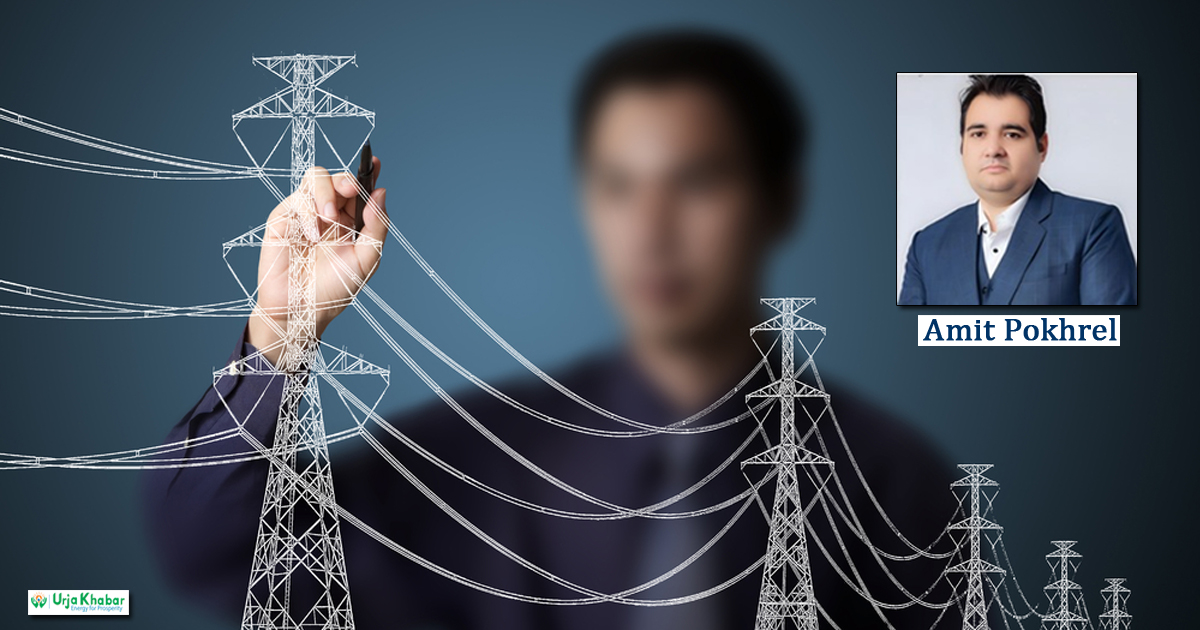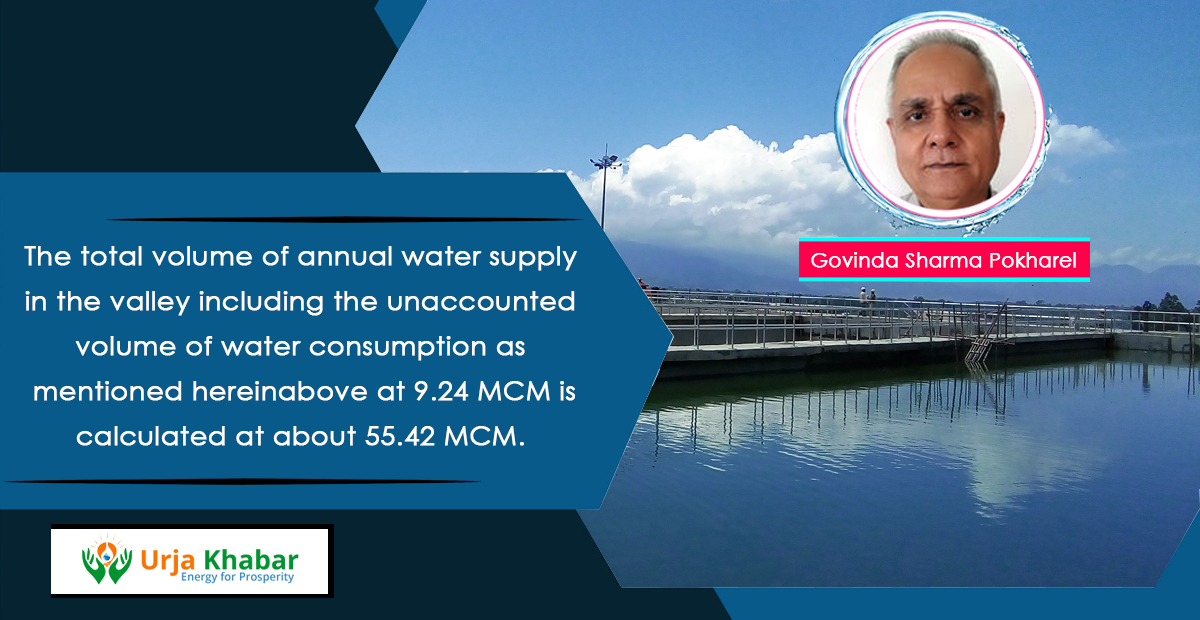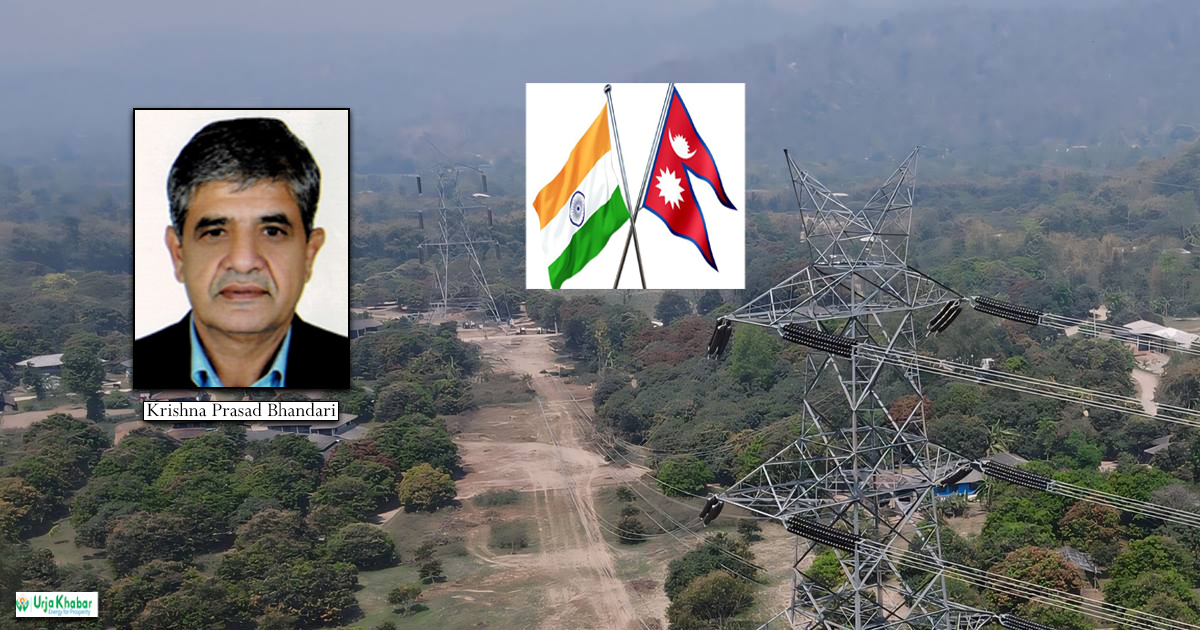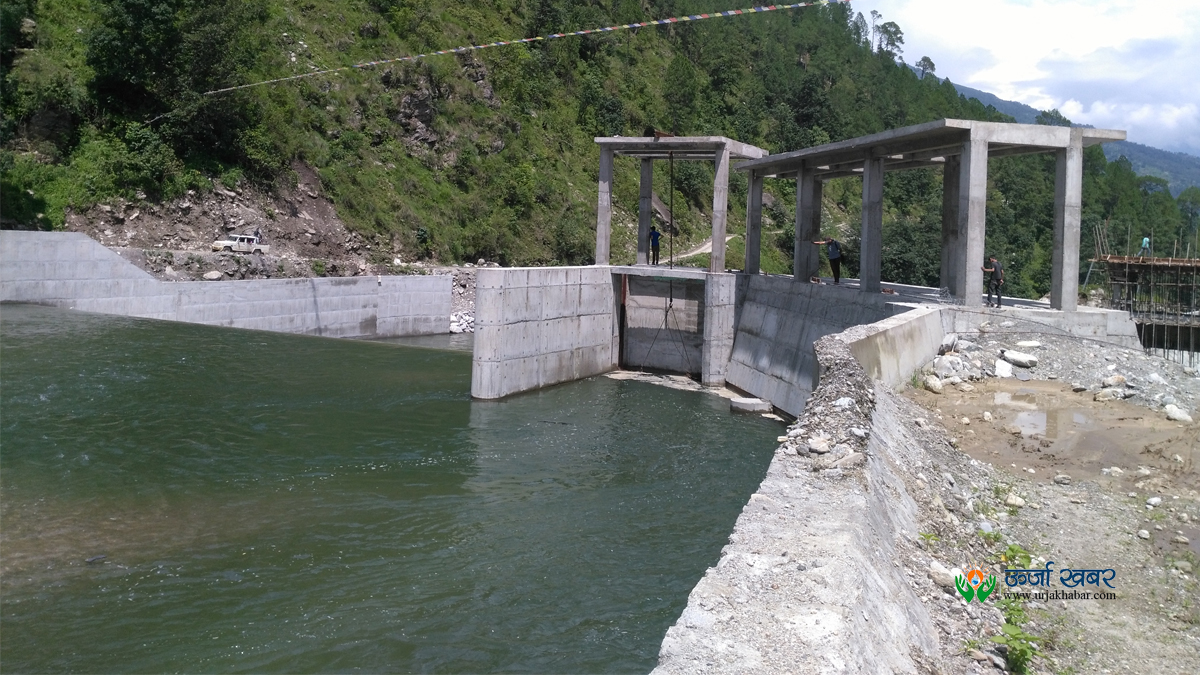Energy Update
Engineering Professionals in Nepal's Energy Sector: A Policy for the Sustainable Development

Nepal, a place of Himalayas with abundant natural resources, stands at a pivotal juncture in its development journey in the energy sector that currently is developing the hydropower and solar energy, the renewable energy sources for the sustainable development in the country.
Our country is rich in the hydropower potential, the solar energy and other energy resources that can significantly contribute to the economic growth and meeting the sustainable development goals that fulfil the scope and objectives for the living communities. This article signifies the link for the Engineering professionals who passed out every year in Nepal and the effective utilization of these resources’ hinges on the capabilities of the Nepalese Engineers and other professionals that can support the technical and the project management activities that also prioritize the local talents for the growth and sustainable development of the renewable energy in Nepal.

This article is prepared to address the current need in the energy policies that must be reformed to foster a culture of self-sustaining the Energy ecosystem of Nepal. Yearly, the country brings us the talented professionals from each field and if those youth can prioritize with employment opportunities mandatory like MBBS for at least to serve in Nepal’s energy sector, I believe the government can rely that education for the infrastructure development and can create opportunities them at least for two years to compulsory practice their talents in the energy sectors to contribute their energy for the development of infrastructures. In terms of hiring skilled people from the foreign countries and try to avoid the higher pay to international expert, why not the local and state government give more preference to the national engineering and diverse professionals to support the regional and national economic growth that can help to sustain the Nepalese Engineers and other diverse professionals who can be a reliable source for developed countries in future. The government shall promote such practice to sustain our talented resources instead investing lots of money to the other nationals who will replace our talents to press our resources to fly abroad for the job tasks that is affecting the Nepalese first.
From our scholars and our research, currently, Nepal is blessed with an optimum range of energy resources. With an estimated capacity of over 83,000 MW, the hydropower generation is the backbone of the Nepal’s energy sector. The country is fully dependent on the snow fed mountain and the annual rainfall that has harnessed a fraction of this potential, indicating vast opportunities for the country sustainable development. The geographical location of Nepal allows for significant solar energy generation, particularly in the places where it can be utilized to develop the solar power plant and that can be installed in the national highways for transportation facilities, solar plant for the industrial areas, airports, hospitals, star hotel, remote areas and other necessary areas where the solar panels are easily installed for providing electricity for the communities living in the territories that would help to sustain local industries and a source of revenue generation. Although, wind energy has also potential in certain regions where wind patterns are favourable and these resources present opportunities for energy generation, particularly in rural areas where traditional biomass is already in use.

Despite the potential, Nepal has to face several challenges in the energy sector due to the reliance on foreign experts for project execution and management that has hindered the growth of local talent. The existing policies do not adequately support the development of local professionals and the lack of a conducive environment for investment that has slowed down the development of energy projects that leads to the slow pace in the energy sectors even the PPA for the projects are result driven based on the technical documents where investment is the key for sustainable development of infrastructures.
Nepalese engineers and professionals are crucial for the sustainable development as their understanding of local knowledge, code of ethics, culture and geographical landscape positions them uniquely to lead complex infrastructure projects. Local engineers are more familiar with the geographical and socio-economic landscape, leading to better project planning and execution. Hiring local professionals can significantly reduce costs associated with foreign expertise, including travel, accommodation, and consultancy fees and the most likely to innovative solutions tailored to the unique challenges faced in Nepal. Our engineers are well established globally as we experience multiple tasks in the energy sector making us reliable for the development of the infrastructures with site hands-on experience knowing the activities from inception to commissioning.
To bridge the gap between the education and the employment, it is essential for the government to facilitate partnership between universities and private developers and such collaboration can lead to the development of the youths of the present and future generations.
In my opinion, universities can establish internship programs with Ministry of Energy, the other energy agencies and with private hydropower and solar energy developers, allowing students to gain practical experience while still in school. This hands-on experience is invaluable for their future careers. Universities can work with Private developers to ensure that the curriculum aligns with industry needs, equipping graduates with the skills required in the energy sector like engineering design, sustainable design, dam engineer, basics engineering, project planning, cost estimation, feasibility studies, geological investigation, geophysical investigation, susceptibility design, optimization, site survey, site supervision and monitoring of the works, the construction audit, project financial management and managing projects successfully.
Similarly, I believe that the collaborative research projects can be initiated to address specific challenges in the energy sector, dam optimization, energy optimization, site selection and environmental consideration, fostering innovation and practical solutions. Similar to the mandatory services requirement for MBBS graduates, engineering graduates should be required to work in the energy sector for a minimum of two years.
This policy should come either from the National planning office or by the bureaucrats to think about the future of the Nepalese diverse professionals who are the backbone of the Nepal’s development and shall ensure that they contribute to local projects and gain essential experience so that they can sustain the career and sustain themselves in Nepal and abroad. The Government and the organizations who are really seeking for the development of the country must think on local partnerships, and seek to collaborate with the international energy associations, construction associations and energy developers for the interest of the country in creating hundreds of opportunities and a source of technology transfer to upgrade our professional skills so that they can be a part of developing nations.
Forming joint ventures, consulting and sub-consulting ventures with international companies can bring in expertise and investment, while also providing local professionals with opportunities to work on large-scale projects that can prioritize both the development of nations and professionals. International organizations can offer training programs for the diverse professionals enhancing their skills and knowledge in advanced technologies and project management. The Government and the reliable organizations who really seek the development of the country can establish connections and networking with international organizations that can open doors for Nepalese professionals to participate in global projects. The Government of Nepal, particularly the Ministry of Energy, Water Resources, and Infrastructure, the DOED, NEA, and other line agencies should consider implementing the following policies in coordination with the policy makers:
a) The government should provide incentives to companies/ organizations that prioritize hiring local engineers and other required professionals over foreign experts so to provide the opportunity first for the Nepalese without taking consideration of biased policy rather implementing equal contribution policy,
b) Strengthening technical education and vocational training that will equip graduates with the competent skills to meet industry standards,
c) Establishing incubators and funding opportunities for local startups in the renewable energy sector can foster innovation and entrepreneurship,
d) The Government should create a framework for collaboration between universities and private energy developers, open competition, ensuring that job sustainability and skill development are taken into consideration.
As we all know that, Nepal’s rich energy resources provide a solid foundation for growth where our neighbouring country is taking advantages of our river resources and they have planned it for the future development for the electricity and irrigation for tapping from Nepal. In this situation, Nepal is not harnessing their full efforts to think for the sustainable agricultural development, tourism development, use of the energy and set up for sustaining their growing number of graduates on such projects like Arun Hydropower Project, The Karnali basin that has been agreed by the two countries. The Indian government has been involved in developing several hydropower projects in Nepal, particularly focusing on the West Seti and Seti River projects. These initiatives are part of a broader effort to harness Nepal's vast hydropower potential, which includes various agreements for energy generation and collaboration between the two countries where Nepal’s signing authority shall keep their interest first to sustain Nepal from every means.
As of July 2025, there are 18 hydropower projects and 17 solar energy projects under construction in Nepal. These projects are part of the country's ongoing efforts to enhance its renewable energy capacity. In this regard, the increasing number of graduates from various provinces from several universities can taste the employment opportunities. However, due to limited experience, many engineers lack practical experience in large-scale projects that would be the reason leading to a loss of talent as the current situation of Nepal is not encouraging the professions to focus on Nepal rather preference abroad.
There are many reasons and one of them is of the corruption that leads to the youth to fly abroad for jobs and education as the government has not taken those initiatives seriously for the youth opportunities and employment security in any of the provinces in Nepal and Nepal still a trap zone for the citizens due to parties influence in gaining traction rather thinking for Nepal’s interest first which annoys majorities of youths to fly abroad for job securities and a place to make the future better so to sustain the homes and lives of the family.
The importance of local employment is necessary and the present scenario expresses the dredging condition where many professions are leaving the country day by day due to lack of empathy by the government and no future for the youth due to hazardous policy and with poor governance structure.
The Government of Nepal should adopt a sustainable policy stating “Nepali Haaami, Nepali Pahilo” emphasizing the importance of the employment in all sectors, particularly in energy for the engineering diverse professionals. Still the time is one hand to think about developing Nepal. The government must champion a “Energy, Employment, and Nation” policy—mandating that Nepali hands build Nepal’s future.
All renewable energy projects—hydropower, solar, and wind or any other energy projects—must prioritize Nepali engineers, technicians, management, and workers at every level, from the Himalayas to the Terai. Foreign expertise should supplement, not supplant, our workforce. By imposing strict local employment status, skill development programs, and technology transfers, we ensure that Nepal’s energy revolution fuels not just our grid, but our economy and national pride. We are very familiar with the Nepal’s economy as that has been heavily reliant on remittances from citizens working abroad. By fostering the employment for the Nepalese first, the government can reduce this dependence and create a more self-sustaining economy. This shift will also encourage investment in local businesses and infrastructure that helps in contributing the skills for the economic growth of the provinces.
In 2025, Nepal's energy sector, particularly hydropower, is projected to significantly contribute to economic growth, with the economy expected to grow by around 4.5%. (Source: The World Bank). The electricity and gas sub-sector are anticipated to lead this growth, reflecting the sector's vital role in enhancing overall GDP. Nepal's energy sector, especially hydropower, is crucial for economic development, providing a foundation for sustainable growth. The sector's contribution is expected to be significant, with projections indicating a GDP growth rate of approximately 4.5% in FY25, up from 3.9% in FY24. The government envisions an average annual real GDP growth rate of 7.1% until 2029, highlighting the energy sector's potential to drive this growth.
As of 2025, Nepal's hydropower generation capacity has reached around 3,500 MW, marking a substantial increase from earlier years. The energy sector's development has mobilized over NRs 600 billion in capital, indicating strong private sector involvement and investment. The Take-or-Pay Power Purchase Agreement model has attracted private capital, ensuring revenue certainty and contributing to a positive energy trade balance. The potential for regional energy trading, particularly with neighbouring countries like Bangladesh and India, presents opportunities for economic growth and energy security.
By implementing policies that gives more attention to the national talent and fostering collaboration between universities and private developers and other organizations, the government can create a sustainable energy ecosystem policy that benefits all citizens at least prioritizing the national citizens in the development of energy sectors as from the current trend, it can be seen that the big house of Nepal giving more preference to the foreign and neighbouring nationals bypassing the norms of keeping national interest first that has affected the thousands of Nepalese professionals career in the energy sectors. The salary structure also governs the sustainability of the engineers in Nepal as the discriminative structures made many engineers fly abroad in the security of equal pay that is affecting Nepal’s overall development which scrutinizes the current policies that need to be reformed in terms of thinking first for Nepal either by Nepal Engineers Association, IPPAN, Universities, Government, Policymakers, Social people to think and work for the Nepalese first.
The Government of Nepal, particularly the Ministry of Energy, Water Resources, and Infrastructure, DOED, NEA and the Private other Hydropower, Solar or Green Hydrogen Developers must take decisive action to support national professionals. By fostering a culture of local employment and innovation, Nepal can pave the way for a brighter, more sustainable future. The time has come for Nepal to invest in its human resources, ensuring that the nation can harness its abundant energy resources for the benefit of its people and the communities that we are currently living in.
The Author is the Executive Advisory Committee Member of the Fast Infra Label, the Global Infrastructure Basel Foundation, Switzerland and the Principal Engineer for Hydropower & Dams, Solar and Construction.
Reference
1. Nepal: Economy | Asian Development Bank
2. http://infromationofnepalsenergysector.com
3. Nepal Development Update
4. Engineering Sustainability to meet crucial UN Sustainable Development Goals
5. sustainability-12-06312.pdf
6. (PDF) Policy Analysis for Sustainable Hydropower Development in Nepal Keywords Sustainable Development Hydropower Policy Nepal Energy Sector Environmental Governance Renewable Energy Policy Analysis Water Resource Management Socio-economic Impact Infrastructure Planning Energy Security
7. vision-2050.pdf
8. (PDF) Review of Energy Policies and Strategies in Nepal: Challenges and Opportunities
9. Facilitating sustainable energy transition of Nepal: A best-fit model to prioritize influential socio-economic and climate perception factors on household energy behaviour - ScienceDirect
Conversation
- Info. Dept. Reg. No. : 254/073/74
- Telephone : +977-1-5321303
- Email : [email protected]














